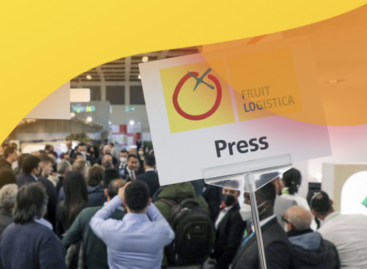Environmental, economic and moral issues in Berlin
Besides the 400,000 visitors and 12,000 exhibitors, there was another record for the 75th Grüne Woche: agricultural politics was more important than ever before. The ministers of agriculture from 46 countries were present in Berlin. Ilse Aigner, Germany’s minister of agriculture forecasted a 30-percent increase in vegetable oil prices. She also expected milk prices to increase. She was of the opinion that the price competition in German food retail would be detrimental to quality. Ilse Aigner also pointed out that the average German household only spent 11 percent of its expenses on food. Gerd Sonnleitner, the president of the German Farmers’ Association criticised the overwhelming dominance of food retail companies. He said that five discount chains realised 44 percent of all food turnover in Germany. At the same time, retailers negatively discriminated against small companies. In relation to the milk producers’ situation he pointed out that by subsidising or changing the taxes the state was unable to mend what the market ruined. Alexander Müller, FAO’s assistant director general stated that global warming was not only an environmental, but also a political and economic problem: by 2050 the Earth’s inhabitants would be around 9 billion and 70 percent more food would be produced to cope with demand – which means more CO2 emission as well. Agrarmarkt Austria (AMA) also held its usual press conference. Managing director Dr. Stephan Mikinovic informed journalists that last year Austria’s export expanded by 8 percent in terms of volume (7.96 million tons), but contracted by 10 percent in terms of value. Austrian statistical data revealed that Hungarian export to Austria was down 21 percent last year (at EUR 332.8 billion). Our most important export category is meat, which managed to grow by 4 percent (EUR 42 billion); processed fruit and vegetable fell by 41 percent to EUR 28.3 billion.
Related news
Related news
This year, Trade magazine is asking its readers for their opinions on Christmas TV commercials! Vote for yourself!
The audience voting takes place between December 12 and 19,…
Read more >FRUIT LOGISTICA 2025: The exhibition awaits visitors with numerous innovations
Representatives of the international fruit and vegetable trade will meet…
Read more >EuroCIS 2025: Serious interest in the retail technology trade fair
Amazon and TikTok recently signed an agreement that will allow…
Read more >





